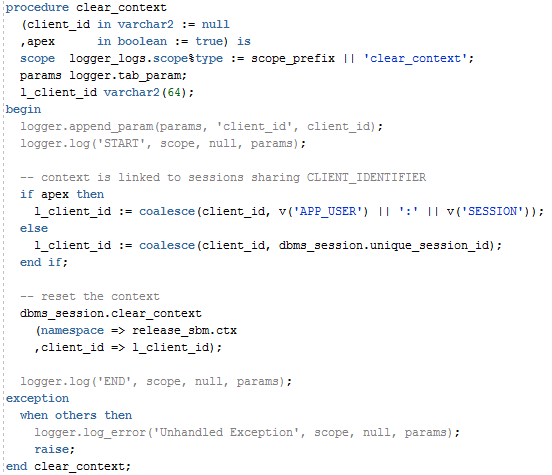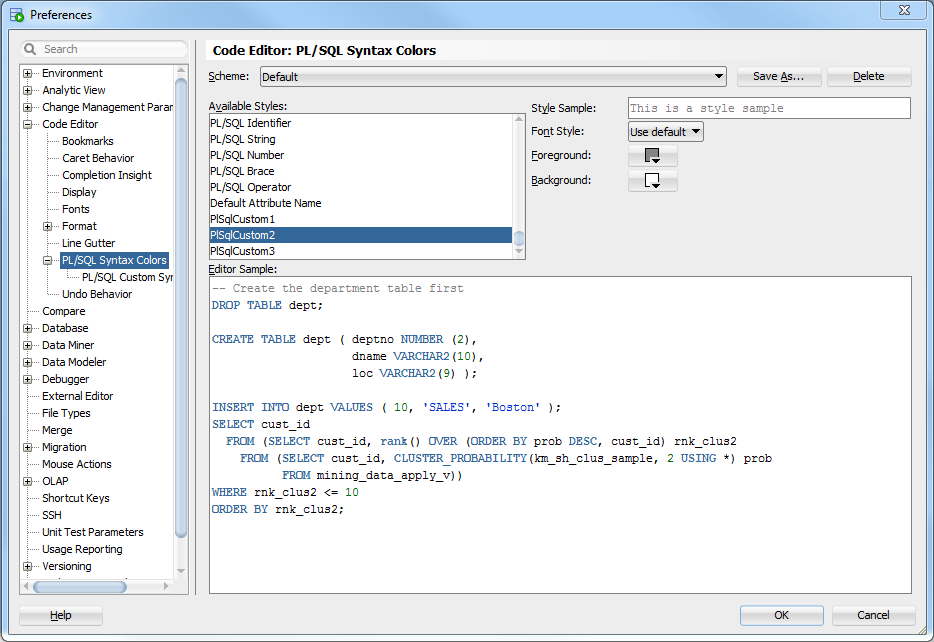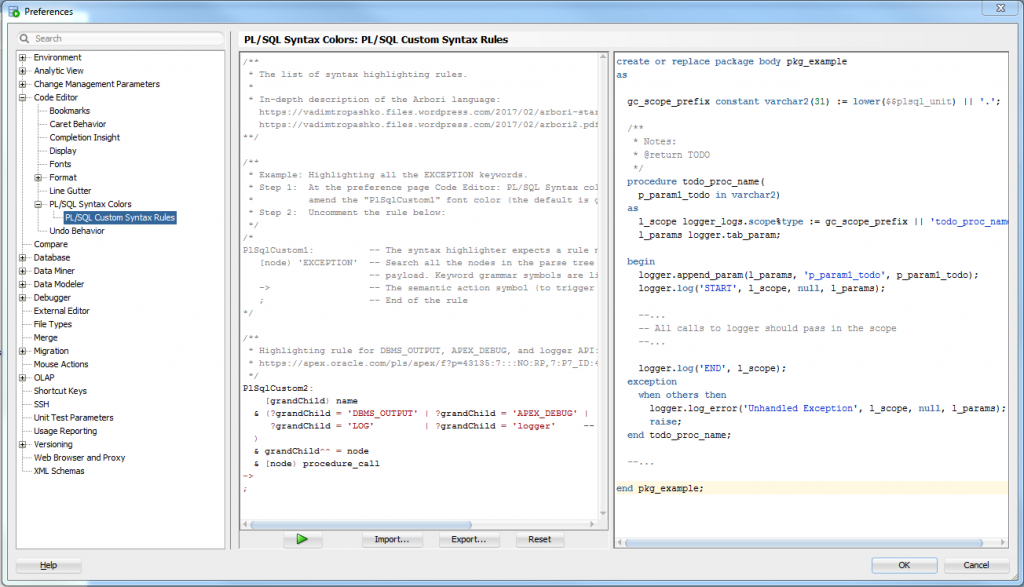A few years ago I raised an enhancement request for SQL Developer to add custom highlighting, specifically to “grey out” all the calls to logger throughout my code. I blogged about this here.
Oracle SQL Developer 18.3 adds this feature with PL/SQL Custom Syntax Rules – and the best thing is, these rules are enabled by default so you don’t have to do anything. Any calls to logger, dbms_output and apex_debug will be greyed out.

You can customise the colour for this rule in Tools -> Preferences -> Code Editor -> PL/SQL Syntax Colors – the one for logger etc. is called “PlSqlCustom2”:

You can view (and edit, if you want) the rule in PL/SQL Custom Syntax Rules:

I’m not very familiar with the syntax but you can add additional libraries by adding more lines like this to the rule:
| ?grandChild = 'MYCUSTOMLOGGER'
The only thing missing is that it doesn’t pick up the standard logger variable declarations (scope and params). I haven’t worked out how to include these in the rule yet.

Pictured: Hamersley Gorge, Karajini National Park, Western Australia
Why is this blog called “Jeff Kemp on Oracle”?
Pretty much my entire career has been underpinned by the Oracle database. My first few I.T. jobs involved maintaining and building Oracle Forms and Reports. SQL and PL/SQL have been my indispensable two-pronged tool since day one and remain so today. Through fortuitous circumstance I had the opportunity to swap Forms for APEX quite a few years ago and I’ve been busy working on APEX applications since then.
The Oracle database is pretty old, and it’s huge and horrendously complex. It’s not the most popular – it certainly is among the “most dreaded” technologies in recent surveys; and (apart from XE) it is not cheap. But it unarguably has been, and still is, a major force to be reckoned with. When handled well it is still top of the line when it comes to performance and reliability.
Oracle APEX started out as a kid brother to Oracle Forms back in the mid-2000s, and has since quietly risen to be a nimble and capable development platform. It allows developers from different backgrounds to be productive very quickly.
- If you’re a web developer skilled with HTML, CSS and Javascript, you can let APEX handle the database plumbing for you and build beautiful, functional and responsive web sites.
- If you’re a PL/SQL nut like me, you can let APEX handle all the user interface and web browser complexities and build beautiful, functional and responsive web sites.
Either way, APEX gives you a starting point to learn the “other side”, whichever angle you came from.




